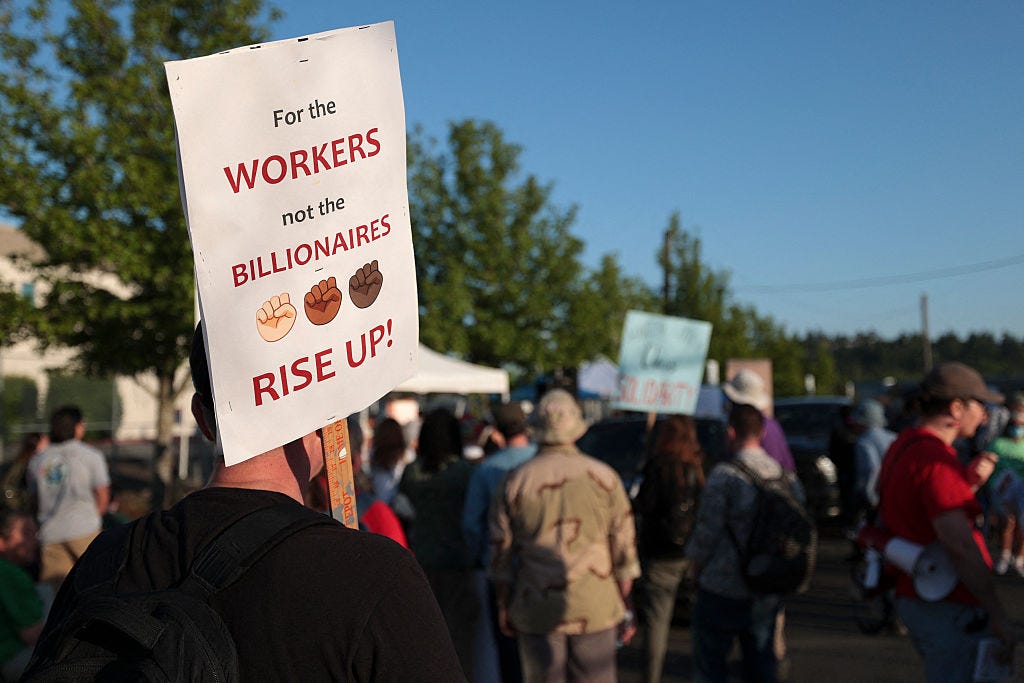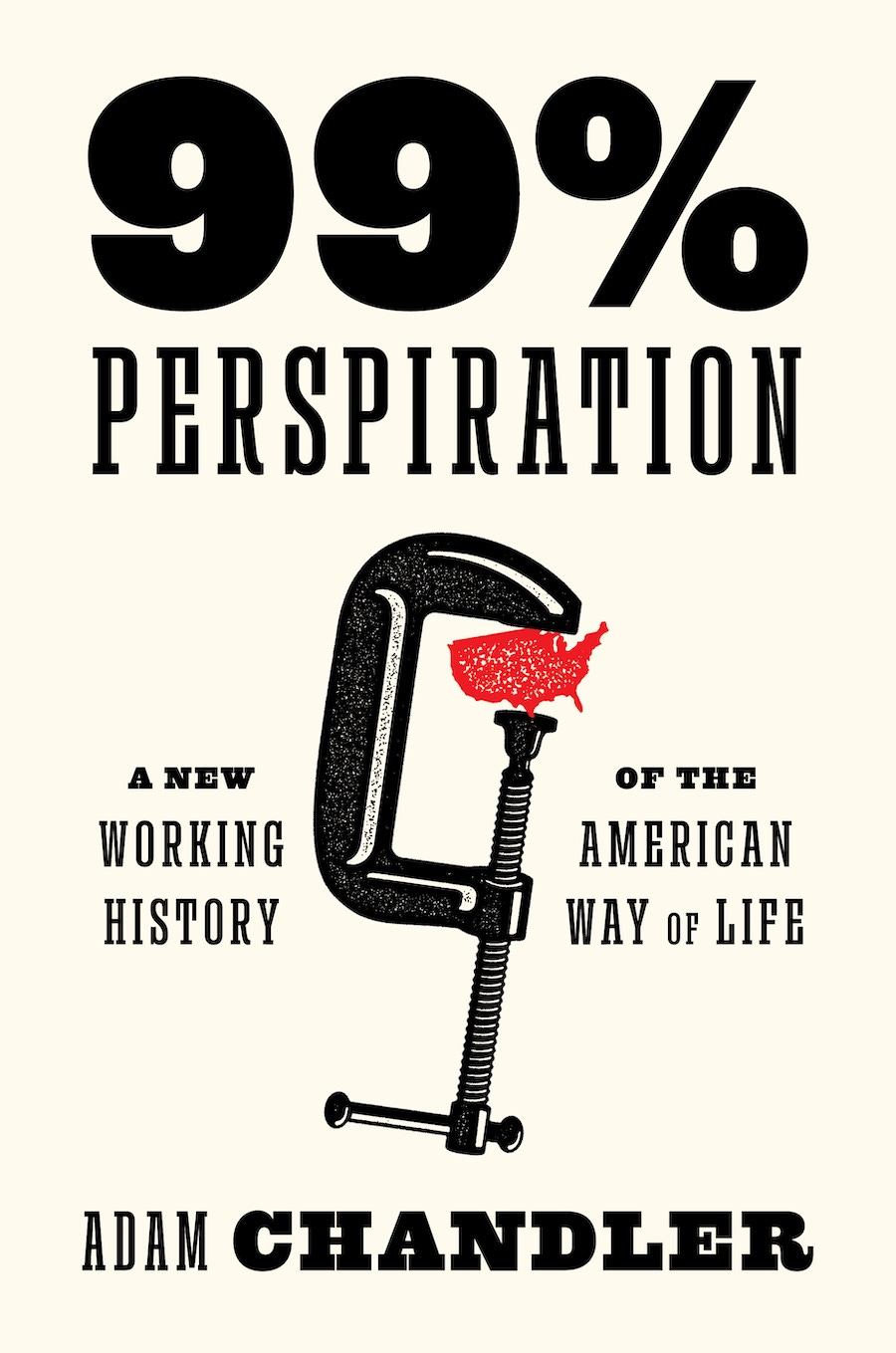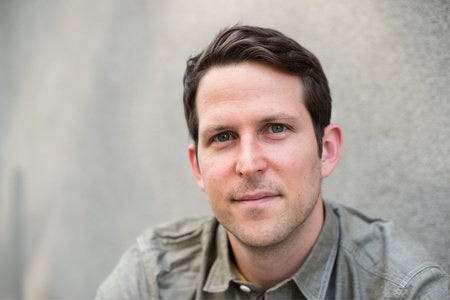Escaping the grindset
Journalist Adam Chandler on the American cult of individual success, why it broke our society, and how we can build something better together
Is American work culture broken? And how do we go about repairing it?
That’s the project journalist Adam Chandler set out on with his latest book, 99% Perspiration: A New Working History of the American Way of Life. Researching the book took him across the country, talking to people from all walks of life about how they thought about their work, and how they saw themselves, their communities, and their futures through their work.
What Chandler found was the persistence of a myth of individual success, even as the conditions that had made success and social mobility possible for many in the postwar era — strong communities, dependable employment, third places for gathering outside of work — have been stripped away in the name of a corrosive market fundamentalism. American political culture has not been up to the task of either addressing the damage or filling in the gaps left by the hollowing out of institutions, and citizenship itself has decayed as the possibility of the American Dream has faded. The desperate precarity that has resulted has been a key driver of the resentment that brought us Donald Trump.
We talk to Chandler about how America’s fetishization of the grindset got us into the fix we’re in, why rejecting the notion that individual effort is the only way forward and even what defines us is the way back to a more humane and sustainable way of life, what we can do to rebuild ideas of citizenship and community even now as things look so dark, and how Americans can come to a mutual understanding that it’s possible to recognize our differences and still come together for a common cause.
There’s a particular strand in American ideology which you call the “abracadabra,” the transmutation of the Protestant work ethic into a valorization of the individual, grinding themselves into the ground, which basically covers up the failure of American society to weave a social safety net, and gets us to blame ourselves.
We have this individualistic narrative that permeates every nook and cranny of American life. It's not just what we're brought up with in terms of thinking about hard work. It's the way that our welfare policies are structured. It's the way that our communities are structured around individual achievement and not community focus. We're taught that the way you prove your worth and your importance in the knowledge economy is by being at your desk at 8 o’clock at night.
We lionize these individual stories, and we don't talk about how they got to where they were by virtue of not just privilege, but mentors, by teachers, by education, by taxpayer-funded research.
If we want to restore citizenship, a common cause, and have community be a focal point of how we organize ourselves, some of that is just not being at work all the time.
Hustle, do more with less. These catchphrases we've heard not just from the right, but from forces allied (or so we believed) with the Democratic Party. Did liberals and the left dig our own hole, participating in something that has metastasized into an even stronger cult of the individual against the idea of collectivity, and even against the idea of citizenship?
What I think is kind of telling is if we look at the 2024 election, one of the main messages was, “We have to preserve democracy. We have to defend democracy against this autocratic threat.” And a big reason why that didn't resonate is because if you are looking at how workers have become 64 percent more productive over the last 40 years and are only paid 17 percent more for it, or how people who don't have college degrees and people of color have seen real wages go down over those 40 years, democracy has not worked for everybody.
Exactly.
You can look at the fact that medical debt is the biggest reason that people declare bankruptcy, or that baby formula is the most shoplifted item, or one of the most shoplifted items. That's not a functioning democracy. So you're arguing in the abstract against real, harsh realities that Democrats have tended to ignore or have not addressed forcefully enough at the risk of alienating part of their supposed base. But it hasn't worked out. It obviously hasn't worked out.
So you can look at the vote for Donald Trump as a kind of a protest against this abstraction of American democracy, because it frankly has sucked for a lot of working people for a long time. But, on the other hand, what people have gotten is something very much worse, making it much more likely that people will be unemployed or bankrupt and sick, less likely that their kids are going to have a path to advance beyond where they are
What do you say to people who voted out of that expectation? And what do you think they see in what's happening now?






